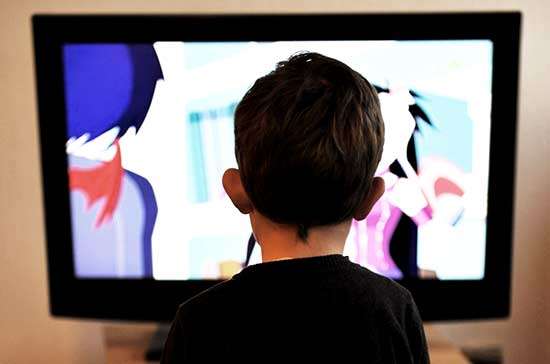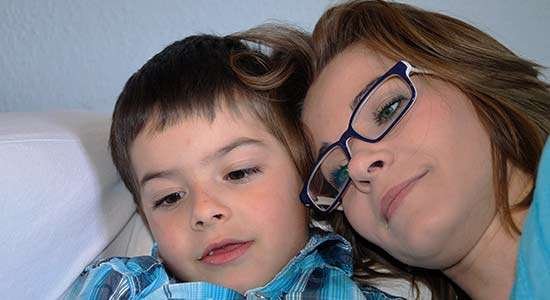As parents, we want to ensure our kids are safe, happy, and content. But sometimes, a movie can be just as important to them as it is to us. In this guide, we’ll share our recommendations for the best movies for kids, along with some of the best family-friendly film genres.
Know what your child is watching.
Surprisingly, many parents don’t know what their kids are watching. They may think their child is watching something educational, but they aren’t. Several shows don’t have good messages for children, even if they seem harmless.

That’s why it’s important to know what your child is watching at all times. If they are watching something you disapprove of, change the movie or turn off the TV.
Always preview the movie in advance to understand what your child will be watching. By watching the film yourself or viewing the movie trailer first, you’ll be better prepared to discuss the various types of content your child encounters. This approach encourages open communication about movie content and helps guide your child’s viewing experience.
You can also preview television shows so that you know whether they are educational or not. This way, if there are any unsavory parts inside, you won’t have to worry about explaining things later on down the road.
Some things to know before you let your child watch a movie or television show:
What is the movie about, and what age group is it appropriate for?
To understand the content, you should either watch it yourself or read a detailed synopsis. By doing this, if your child has questions about the movie or TV show later, you’ll be prepared to discuss and explain what’s happening, rather than avoiding their questions.
What is your child’s emotional maturity?
Before you let them watch a movie, think about whether they are emotionally mature enough to handle it. Some films have foul language, violence, and other things that might be too much for your young or sensitive child to cope with. If so, then don’t include those types of shows in their media consumption time!
Is the movie educational or just for entertainment?
Some shows are made for entertaining your child, while others teach them something new. If you want educational children’s movies, then stick with animated ones or have positive messages that you can talk about.
Are there any unappealing parts in this film that could be harmful to your child?
It’s important to know what is in the movie before you let your child watch it. This way, they won’t have questions later on down the road because of something that happened during a scene.
What is the message of this movie, and how will it affect my child’s behavior if they watch it?
When you watch a movie with your child, look out for the message that it sends. Some films have bad messages or ones that might not be appropriate to talk about just yet if they are too young.
Is there any violence or language that may not be suitable for younger children?
You might want to know if there is any violence or language in the movie before letting your child watch it. This isn’t always as easy as reading a summary of what happened, so look out for those things when watching the previews and check with other parents who have already seen this film.
Does the movie have a happy ending?
Some movies might have a sad or depressing ending, which isn’t always something that young children can handle. If the movie ends on a sour note, then you might want to find another one instead.
Who are the main characters of the story, and what do they want to achieve?
When you watch a movie with your child, look out for what the characters are trying to achieve. If they aren’t great role models or have bad intentions, it might not be best to see this film yet.
Should I watch this movie with my child instead of letting them watch it on their own?
Before you let your child watch a movie, think about whether it’s necessary for them to see it with an adult or if they can handle watching it themselves. This will depend on the content of this film and how mature they are at handling things when something goes wrong.
How does this movie compare to other movies we’ve seen together in terms of content and quality?
You might not know if the movie will be appropriate until you’ve seen it with your child, but when watching it together, make sure to talk about how this one stacks up compared to other ones that they’ve watched before.
This is not an extensive list of things to consider before letting your child watch a movie, but it’s just some ideas you can use when thinking about what is best for them.
Some other questions that you might want to think about are:
- What is the background of this movie? (Is it based on an actual event or not?)
- What type of role models do these characters show my children?
- How does this movie compare to what I want my kids to watch on TV or online?
- Does this movie teach any values or lessons that I want to instill in my children?
- What age is it best suited for? (G, PG, PG-13, R?)
Read reviews for movies to get an idea of what people are saying about them.
Reading reviews for movies will help you get an idea of what other parents think about them, which is especially helpful if your child wants to watch a new movie and want it right away.

Try to find reviews that are posted by parents or a source that has been tested out before.
Some movie review sites, such as Common Sense Media, allow parents to rate movies based on their own experiences with them and how they feel they would be suitable for children of different ages.
This website is great because you can search for a specific movie or actor/actress that your child may love, which will give you all the necessary information about the film before watching it.
You should also check out what age groups have recommended this specific title so you know exactly where to draw the line when deciding if your little one is ready for this kind of content or not!
Another great website where you can find reviews is Rotten Tomatoes.
Not only does this site give a rating for the movie, but they also include excerpts of what people have said about it and why their score was decided on that specific scale!
If your child wants to watch a particular show or film series, try searching for some YouTube videos made by children who may be watching these movies as well.
You could see whether or not they are appropriate for any age group before deciding if you want to let them view it! If there aren’t many videos available with kids giving examples of how they feel about different types of shows/movies, then most likely, these titles should be kept away from them!
Finally, IMDB (the Internet Movie Database) is a great website that includes movie ratings from film critics and audience members, as well as a collection of reviews people, have posted about them!
It’s also another good site to check out because you can find information on child actors/actresses in these films or shows if your little one may want to watch something they are in!
This way, you have a better understanding of the title they are interested in without watching it yourself.
Talk to your kids about what they’re watching.
If you notice that your child is watching inappropriate content or content that could be potentially harmful, talk to them about it and tell them why you think it’s inappropriate.
For example, if they are watching a show with violence in it and you feel like it’s too mature for your child to be watching, tell them why. Explain how this type of content could make someone upset or even cause problems between other people!
It might not always sink into their heads right away, but eventually, they will understand where you’re coming from and what types of content you think they should be watching or not!
You’re trying to keep them safe and give them boundaries that will also help their development, so don’t feel bad if this is difficult for you! As long as you continue talking about these types of topics with your child on an ongoing basis, then they’ll understand where you stand and what content isn’t appropriate to watch in the future.
Be mindful of the MPAA rating system.
The MPAA rating system is a great tool that gives parents an idea of what type of content the movie they are considering has in it.
However, this isn’t always accurate and can be frustrating when you believe a particular film doesn’t have inappropriate material inside but is given a different rating by them!

If your child wants to watch something rated PG-13, for example, make sure there aren’t any scenes in the film that may upset them if not watched carefully! Even movies with these ratings could contain some pretty intense graphic violence or scary situations, so don’t take anything lightly!
Although every parent should know what their children are watching at all times (so they can monitor whether things seem appropriate), giving them an age rating system like the MPAA is a great way to start!
The MPAA rating system is a great tool to use when deciding whether or not your child should watch any content that isn’t appropriate for them! Especially if you don’t have time to watch the whole film or read reviews, this is a great way to get the gist of what’s inside so you can decide if it’s appropriate or not!
MPAA rating table:
- G=General Audiences All Ages Admitted.
- PG=Parental Guidance Suggested Some Material May Not Be Suitable for Children.
- PG-13=Parents Strongly Cautioned Some material might be inappropriate for children under 13.
- R=Restricted Under 17 requires accompanying parent or adult guardian (age varies in some jurisdictions).
- NC-17 =No One 17 and Under Admitted
Find kid-friendly genres.
Many kids like to watch cartoons or animated movies for their age. If you notice that your child loves these types of shows/movies, then most likely, they will enjoy other similar ones!
There are tons of kid-friendly genres out there, so try to figure out what your child likes and see if you can find a few new movies/shows they might like as well.

For example, if they love the movie Frozen, they will also enjoy another Disney film or something from Dreamworks Animation Studios! This is a great way to expand their interests in types of content without having to watch inappropriate things.
Just because your child watches cartoons doesn’t mean all titles have appropriate material inside, though–so always keep this in mind when looking into these options too! Some animated films could contain violence or adult themes that may not be suitable for children at certain ages.
Many kids today love sitcoms since it gives them laughter and comedy without having anything too intense inside.
There are many movies out there for all different kinds of tastes, so try searching around online to see what comes up!
There are plenty of great options for movies and TV shows for kids. You can find a family-friendly film on Netflix, Disney+, and other streaming services, or you can even head to the local library and check out some DVDs!
The best genres to watch with your kids are animated, sci-fi, and family films. These genres tend to have a lot less violence or adult content in them, which makes it easier for you, as the parent, to relax!
If you’re not sure what movies would be best suited for your child’s age range, then ask their opinion on something they’ve watched before that they enjoyed. Your little one will tell you exactly what kinds of things they like based on the films they’ve already watched, and you’ll be able to narrow down your search from there!
Be sure to set limits on how much TV your children can watch each day.
Studies have shown that too much TV can be harmful to a child’s development, so you must set limits on how much your kids watch each day.
This is especially true for younger children who may not understand just how different content could affect them! Many studies show the adverse effects violent movies and other inappropriate shows/movies have had over time on young children.
It might seem like a good idea at first to let your little one sit in front of their favorite show while you finish up some work around the house. Still, eventually, this will turn into something more severe if they’re constantly watching things without breaking away from it now and then!
If your kid watches hours upon hours of TV each day, they won’t be able to develop their creativity as other children do.
You should stimulate your child’s imaginative side by encouraging them to play games or learn something new that isn’t related to the screen at all! Kids need time to break away from technology for them to grow up healthy and strong, both mentally and physically.

Try setting a limit on how much programming you allow your kids each day after school so they don’t have an excuse to stare at anything else while doing nothing productive themselves.
Give them alternatives to watching TV by having them play outside or reading books instead; you’ll see a massive difference in how much they enjoy these activities over time once the novelty of cartoons has worn off! This way, there will always be a healthier choice available instead of watching things over and over again without ever getting off the couch!
Suggested TV time limits:
- Younger than 20 months: no TV time.
- Age 21 to 36 months: up to one hour a day.
- Ages three and older: up to two hours per day.
These limits apply whenever your children are using screens! This includes television, smartphones, tablets, game consoles like PlayStation or Xbox, computers/laptops–anything with a display!
After they’ve reached their limit for the day, make sure they take breaks away from all electronic devices until bedtime so that you aren’t encouraging a sedentary lifestyle for your child.
Watch movies with them so you can talk about the story and themes together.
If your child can’t watch TV on their own just yet, then you should sit down and enjoy the show with them!
This way, they’ll be able to ask questions about characters or what is happening in the story while it’s still fresh in their minds.
It will also give you a chance to talk things through together so that they understand what is going on instead of asking hundreds of different follow-up questions later when no one has any idea where they’re coming from. This doesn’t mean that you have to sit and watch every single show or movie they like with them; that would be way too exhausting for anyone!
It can even work out better if your child watches something with you that they’ve already seen before so they can enjoy it one more time with your company.
If there’s an age-appropriate movie on television, make sure to watch it together without distractions like phones or other things; this will help them understand why people are talking about certain themes in their lives too!
Watch films that can spark a discussion or teach something new about life, culture, history, science, etc.
Parents should take the opportunity to watch films with their children that can teach them something new or start a discussion, especially with children older than 13. For example, a film about historical events can help children learn the facts from an eyewitness to the event. Similarly, science fiction films provide parents and children alike opportunities to talk about current issues in life sciences or technology.
Films like “Lincoln” and “The Help” are good examples of films that can spark a conversation about history, culture, or social justice. Movies like “Life of Pi” teach children about survival and the bond between a father and his son. Films like “The King’s Speech” or “The Iron Lady” can teach children about the strength of character and how to overcome obstacles in life.
Parents should also check out some lighter family-friendly films like “Wreck-it Ralph,” an excellent movie for older kids and parents, or “Zootopia,” an entertaining comedy exploring diversity and equality.
Parents should not use this time to lecture their children about life lessons but rather engage them in conversation that may lead to the answers they were looking for. You can also use movies as an opportunity to relax and enjoy some quality family entertainment together!

Watching films with your children is a great way to spend time together doing something both parents and kids love- watching movies!
The themes of these films are usually relatable no matter how old you are; we all grow up learning new things or facing difficult situations like those shown on screen. These stories make us think about ourselves, our lives, and what it means to be human. Whether historical fiction or modern-day comedy, there is a movie for everyone.
Many types of movies will spark conversation with your child, but the following 10 films were chosen because they give you great examples of what kinds of themes to look for when picking a movie to watch together! Most of them are PG-13, so be wary of what your child is ready to see.
Don’t feel like you have to watch all these movies! Pick one that your child wants to see or that seems interesting, and enjoy spending time with them. These movies may not be perfect for every family, but they are all great examples of what you can watch together, whether it’s on TV.
“Wreck-it Ralph”
A movie about bullying, overcoming obstacles, and learning to appreciate life. This hilarious animated film is great for all ages!
“Lincoln”
A historical drama about Abraham Lincoln and the civil war. This movie is a great way to introduce your children to history, culture, or social justice issues.
“The Imitation Game”
A movie about Alan Turing and his contributions to modern computing. An excellent film for history buffs, computer geeks, or anyone who wants to learn more about human rights!
“The Book Thief”
A movie about a young girl in Nazi Germany who learns to read and falls in love with books. This film is educational, touching, and moving all at once!
“Forrest Gump”
A movie about love, life, and loss.
“Lion”
A true story about a young boy who gets lost on the streets of Calcutta and is adopted by an Australian family.
This movie teaches children about empathy, loss, culture, and history.
“The Help”
A historical drama about the civil rights movement in 1960s Mississippi.
This film is educational and entertaining and sparks conversation between parents and children alike!
“Life of Pi”
A survival story about a young boy stranded on a lifeboat with only an injured zebra, orangutan, hyena, and tiger for company.
This film teaches children empathy for others but also how to survive in any situation!
“WALL-E”
A movie about love and the environment. This is a great family film with many layers that people of all ages can enjoy!
“Inside Out”
A film about the five emotions that control every aspect of your life. Parents and children alike will love this funny, touching animated film with a message!
Take a look at our list of movies and try watching just one with your children! You can answer any questions they may have about the film, and you will be teaching them valuable lessons while having fun together- win, win!
How do I talk to my child about what they saw in the movie if it was inappropriate?
It’s natural not to want your child exposed to inappropriate content, especially if their age or maturity level isn’t quite up-to-par yet.
However, the reality is that kids do see this stuff, and you can’t shield them from it forever (nor should you).
Children need to learn how they feel about what they see in movies so ask questions like: “Did anything make you uncomfortable? How did it make you feel? Did anyone say something hurtful? What was said?”
This will help teach your kid healthy boundaries and let them know that even though someone might have made a mean comment, those comments don’t reflect who they are. If violence is shown in a movie, ask your kids what they think might have happened before the scene. Kids love to talk about their ideas, and this is a great way for you to get them thinking critically!
Sometimes your child may not want to answer any of these questions at all; that’s OK too!
Just explain that it’s OK if they don’t feel comfortable talking right now, but remind them that you’re always there to listen when they are ready.
Remember: children learn by example, so the most important thing you can do as a parent is model healthy communication in front of them! This will help teach them how to communicate with others and give them something positive and uplifting (rather than hurtful) to emulate in life.
Share your favorite childhood movie memories with them.
Sharing your favorite childhood memories with your kids is a great way to connect with them on an emotional level. If they were ever asking you about stories from when you were their age, now might be the time for some storytelling!

Make a list of your top three favorite movies from when you were their age, and then ask them to go ahead and write down theirs as well. Then, sit together as a family and see if there are any commonalities between all the choices!
If they have yet to discover some great films that might be right for them, this is also a perfect opportunity to share those memories with your kids, too- maybe even make it into an event like movie night. You’ll be surprised at how many good movies (and happy childhoods) we can find in our past!
Conclusion.
Thank you for reading our blog post. We hope it was helpful and insightful to parents looking for guidance on selecting the right movies for their children!
Please leave a comment below with your thoughts or any other movie recommendations you might have.

Discover the dynamic world through the eyes of Joanna Perez: a celebrated Cognitive Behavioral Therapy Practitioner and an ardent blogger. Not just a writer, Joanna is also an explorer, partner, and a proud mother. Her expertise goes beyond penning thoughts on parenting, health, and lifestyle; she’s also a certified Women Empowerment Life Coach. With training in Life Mastery, Health, Happiness, and Success, she’s equipped to guide you through life’s complexities. Her dedication to education shines as she’s dived deep into the realms of Neuroscience for Parents and completed the Skilled Helper Training Course.
Reviewed By: Anna West and Brenda Tillman
Edited By: Lenny Terra
Fact Checked By: Marcella Raskin
Photos Taken or Curated By: Matthew Mansour